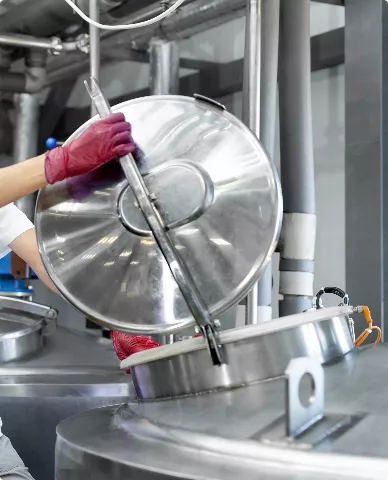Animal by-products
ABPs include a wide range of materials originating from animals, including slaughterhouse waste, spoiled meat and products from animals not slaughtered for human consumption.
Animal by-products (ABPs) are materials of animal origin that are not intended for human consumption, but have various uses in industry and agriculture. These products include, for example, slaughterhouse waste such as bones, blood and viscera, as well as spoiled meat that is no longer safe for consumption. ABPs also include products from animals that died from causes other than slaughter. These materials are important because they can be recycled and processed into different products such as animal feed, cosmetics or biofuels, thereby reducing waste and promoting sustainability.
What qualifies as animal by-products?
-
Slaughterhouse waste: Blood, bones, viscera and other parts that are not used for human consumption.
-
Products not fit for human consumption: Spoiled meat and other products that are no longer safe for human consumption.
-
Animals not slaughtered for consumption: Products from animals that died for reasons other than slaughter.
Animal by-product categories
ABPs are divided into 3 main categories according to their potential risk to public and animal health:
| Category | Risk | Description |
|---|---|---|
| 1 | High | Specified risk material such as bovine spinal cord, animals suspected or confirmed to have transmissible spongiform encephalopathy (BSE) and products containing environmental contaminants. |
| 2 | Medium | Manure, contents of the digestive tract and materials that do not belong to Category 1, but are not fit for human or animal consumption. |
| 3 | Low | Parts of slaughtered animals suitable but not intended for human consumption: furs, skins and certain by-products of food production. |
Processing and utilization of animal by-products (ABPs)
- Collection and handling: ABPs are collected from slaughterhouses and other sources. Correct handling and storage are essential to prevent contamination and ensure safety.
- Rendering and processing: Rendering is a common method of processing ABPs, which transforms them into useful materials such as:
-
Fats and oils: Used in biodiesel, animal feed and industrial products.
-
Proteins: Used in pet food and as fertilizers.
-
Disposal and incineration: Materials that cannot be processed for further use are often disposed of by incineration or in landfills. Strict regulations ensure minimal environmental impact.
-
Regulations and compliance
The EU has strict regulations governing the management of ABPs in order to protect public and animal health, prevent disease transmission and protect the environment. The main ones include:
-
Regulation (EC) No. 1069/2009: health rules as regards animal by-products not intended for human consumption.
-
Regulation (EU) No. 142/2011: detailed implementing measures for the management and monitoring of ABPs.
Industrial and environmental impact
ABPs are essential for a variety of industries contributing to sustainable practices, the circular economy and waste reduction – for example:
-
Agriculture: Fertilizers
-
Energy: Production of biodiesel and biogas from animal fats
-
Pet food and animal nutrition: Protein feed and other nutrients
-
Cosmetics and pharmaceuticals: Raw materials derived from animal by-products such as balms and ointments



